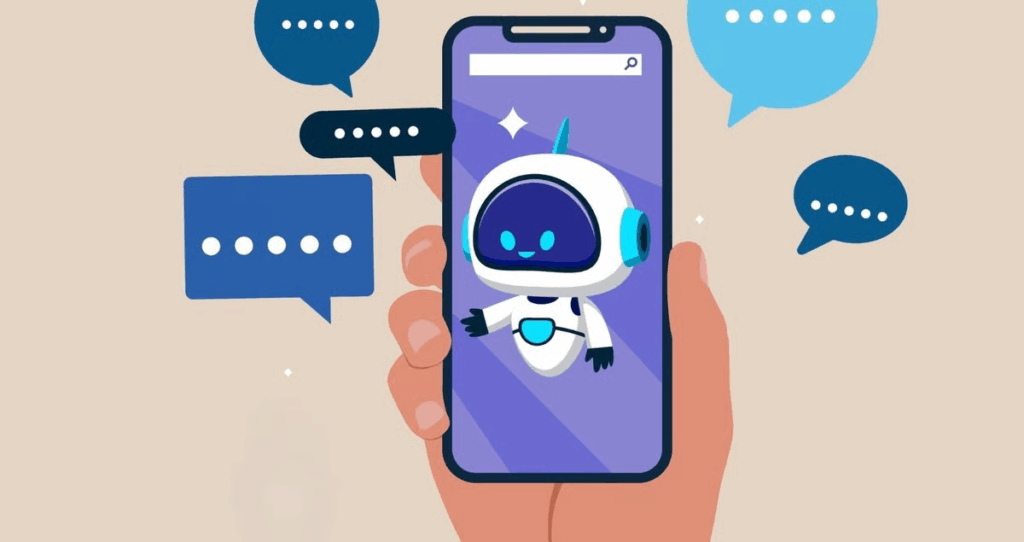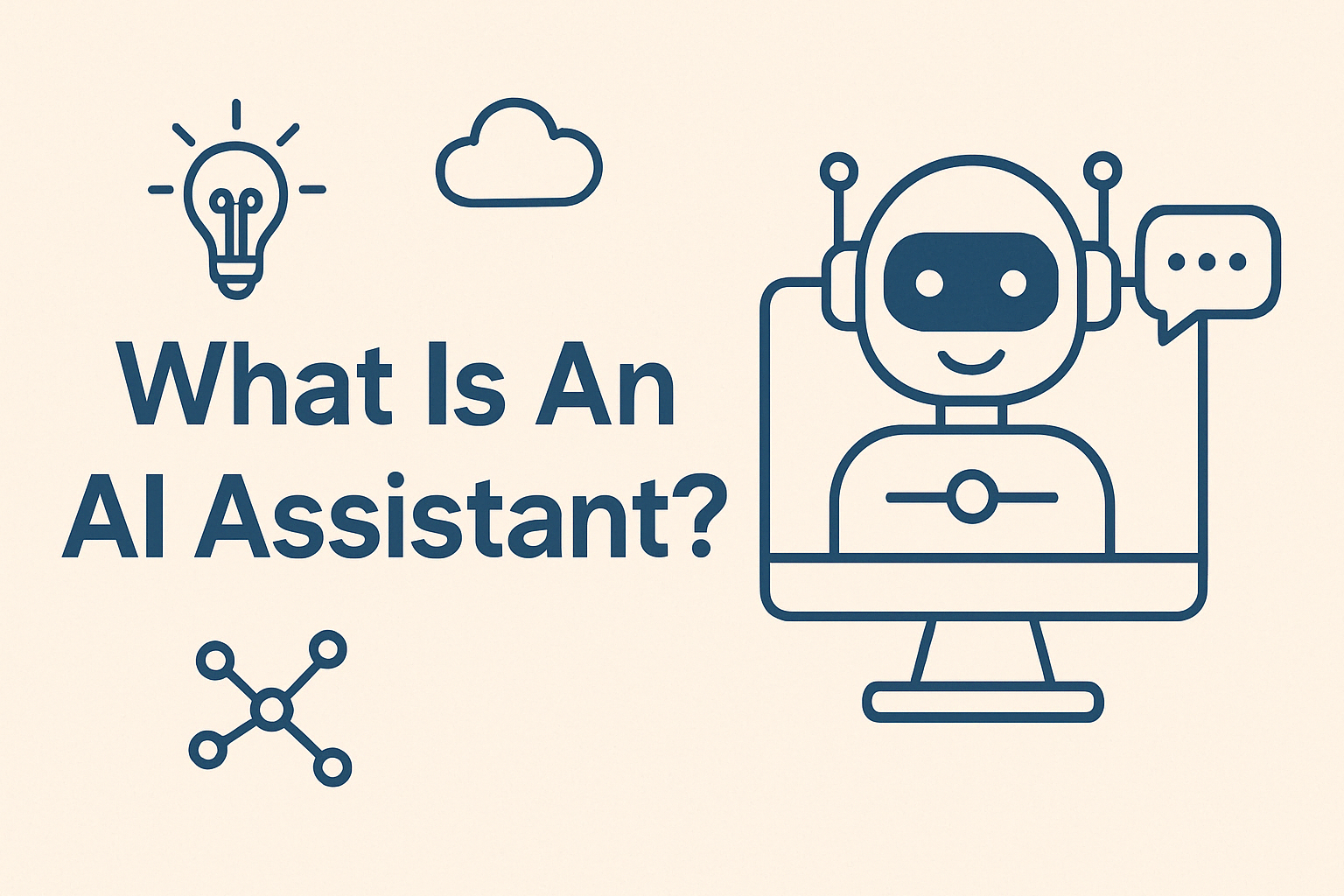Imagine having a smart helper that’s always ready to assist, whether you’re managing tasks, answering questions, or simplifying your daily work. That’s exactly what an AI assistant does.
It works like a digital companion that understands your voice or text, responds instantly, and learns your preferences over time. From setting reminders to handling customer queries, AI assistants are quietly transforming how we live and work.
In this blog, we’ll explore how AI assistants work, where they’re used, and why they’re becoming essential in both personal and professional life.
What is an AI Assistant?

An AI Assistant is a smart computer program that helps you complete tasks, answer questions, or find information using artificial intelligence. It understands your words, learns your habits, and responds naturally, just like talking to a human.
You can use it on your phone, computer, or smart device. Popular examples include Siri, Alexa, Google Assistant, and ChatGPT. These assistants can help with things like setting reminders, sending messages, searching online, or even creating content.
Some AI assistants are used by companies to talk with customers or manage daily work. They work 24/7 and get better with time as they learn more about you.
Types of AI assistants
1. Virtual Personal Assistants (VPAs)
Function: Help users with day-to-day tasks
Examples: Siri, Alexa, Google Assistant
Use Cases: Setting reminders, weather updates, scheduling
2. Conversational AI Assistants
Function: Engage in natural, human-like conversation
Examples: ChatGPT, Google Bard, IBM Watson Assistant
Use Cases: Customer support, FAQ automation, lead generation
3. Task-Oriented AI Assistants
Function: Execute specific tasks using automation
Examples: Zapier AI, Clara (scheduling), Otter.ai
Use Cases: Meeting scheduling, transcription, email sorting
4. Enterprise AI Assistants
Function: Serve internal business operations
Examples: Salesforce Einstein, SAP CoPilot
Use Cases: Sales forecasting, CRM integration, HR support
5. AI Writing & Content Assistants
Function: Generate written content, optimize language
Examples: Jasper, Copy.ai, Grammarly AI
Use Cases: Copywriting, email writing, grammar correction
6. AI Design & Editing Assistants
Function: Assist in graphic design and video editing
Examples: Canva AI, Adobe Firefly, RenderCut
Use Cases: Creating visuals, editing videos, generating design assets
7. Voice AI Assistants
Function: Respond to voice commands using NLP and speech recognition
Examples: Replika, Voiceflow bots, Speechly
Use Cases: Voice apps, emotional support bots, accessibility tools
8. Customer Support AI Assistants
Function: Automate responses in customer service environments
Examples: Intercom, Drift, Freshchat AI
Use Cases: Answering queries, routing tickets, collecting feedback
Why Use an AI Assistant?
Using an AI assistant helps you save time, stay focused, and get more done every day. It can quickly answer questions, write emails, organize tasks, and even schedule your meetings. Think of it as a smart helper that’s always ready, no breaks, no delays.
Whether you’re a student, a business owner, or just managing a busy life, AI assistants make everything feel easier. They understand what you need, learn your style, and respond in seconds. From setting reminders to creating content, they simplify your day in ways that feel almost human.
With more people using AI daily, it’s clear these digital assistants are changing how we work and live.
Benefits of AI Assistants
- Saves Time – AI assistants handle repetitive tasks like scheduling, emails, and data lookup in seconds, helping you focus on bigger goals.
- 24/7 Availability – They work nonstop without breaks, offering help anytime you need.
- Boosts Productivity – According to McKinsey, automation through AI can increase productivity by up to 40%.
- Smart Reminders – They never forget. AI assistants remind you about tasks, meetings, or follow-ups on time.
- Easy Communication – They respond instantly, understand natural language, and even speak multiple languages.
How to Effectively Utilize an AI Assistant
Using an AI assistant effectively starts with clear and simple instructions. Just like talking to a helpful friend, the more specific you are, the better the results. Whether you’re planning a trip, writing an email, or managing your day, an AI assistant can handle it fast.
It saves time by summarizing, organizing, and automating tasks. Many people use it daily for work, studies, or personal projects. You can even ask follow-up questions without repeating yourself. It understands your tone, preferences, and context the more you use it.
That’s how it becomes smarter for you. It’s like having a personal helper who’s always ready ,quick, calm, and super focused.
Frequently Asked Questions (FAQs)
What tasks can AI assistants perform?
AI assistants can handle tasks like answering questions, setting reminders, managing calendars, writing emails, and even analyzing data. Many businesses use them to save time, boost productivity, and offer 24/7 support to customers.
Are AI assistants secure and private?
AI assistants are secure and private when built with strong encryption and strict data policies. Many use cloud-based protection and follow GDPR rules to keep their information safe, just like trusted apps or websites you already use.
How do AI assistants learn and improve over time?
AI assistants learn and improve over time by analyzing large sets of data, user interactions, and feedback. They use machine learning to spot patterns, adapt to new inputs, and get smarter with each conversation.
Can AI assistants integrate with other smart devices?
Yes, AI assistants can easily connect with smart devices like lights, TVs, thermostats, and speakers. This helps you control everything using voice or app, making daily tasks faster and more convenient at home or work.
Conclusion
AI assistants are changing the way we work, learn, and live by making everyday tasks faster, easier, and smarter. From setting reminders to solving complex problems, they combine the power of machine learning and automation to boost productivity.
Whether you’re running a business or managing personal errands, these digital helpers are now a vital part of modern life. As technology evolves, the potential of AI assistants will only grow.
Now is the time to explore how an AI assistant can simplify your day and unlock your full potential.
